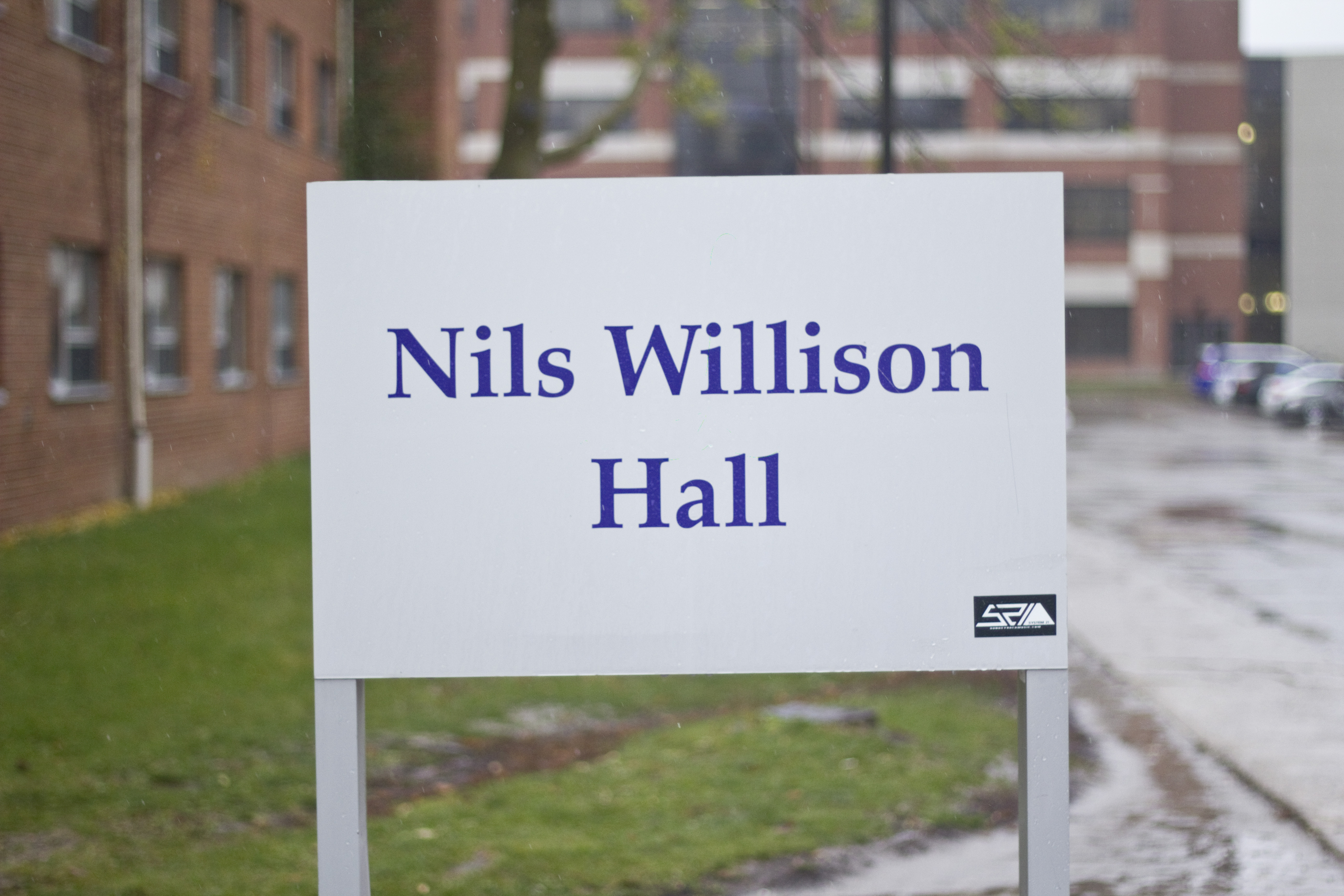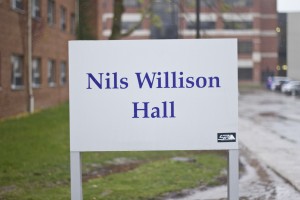Fire in res result of smoking


Students were evacuated from Willison Hall on Nov. 4 after a small fire began in a residence room.
The fire was caused by ashes from a cigarette that were left in a plastic garbage can.
“The fire started under a desk and then spread on top. So basically the garbage can itself was totally gone and there was a little bit of damage to the desk as well,” said John Percy, public education officer for Waterloo’s Fire Rescue Services.
The fire was easily put out after firefighters were called to the scene at 9:43 p.m.. While the fire department has been called to the university for other reasons this semester, this is the first incidence of a fire taking place in a residence this year.
Students, however, are prohibited from smoking in residences and within ten metres of the buildings. This, of course, includes marijuana, though use of this illegal substance inevitably still occurs.
“It’s a constant challenge with most residences,” said Sheldon Pereira, the manager of Residence Life at Laurier, when asked if smoking in residences is difficult to monitor. “With our Residence Life staff we try not to foster or encourage a culture of policing and that we want the residence basically to be comfortable and conducive to the wellness of the student.”
Pereira added that they try to encourage a culture where students can report incidences.
“I would say every round I do on duty, you can smell it at one point or another. So it’s still prevalent. It happens,” said Joelle Charbonneau, a fourth-year student and don at King’s Court residence.
She believes that it’s easier for dons to detect the substance use than students think, because of the distinct smell, particularly with marijuana.
“It’s not difficult for me to become aware if I’m on duty or if I’m walking around the building. It’s always very obvious,” added Cory Coletta, who has been working as a don at Laurier for three years.
Dons don’t directly confront students when they detect marijuana use, however. They pass along the information to Special Constable Services (SCS).
“I feel very comfortable calling SCS when we need to report an issue to them,” Coletta expressed. “I never have to enter a room or put myself in that situation.”
Over the last few years, a shift has occurred in how illegal substance use is handled when detected.
Pereira explained that a movement was made from zero-tolerance, to a three-class system of dealing with offenses, to the broader and more contextual approach that is taken now.
“We’ve provided more options for our Residence Life coordinators when it comes to determining outcomes for students if they’re found to be consuming illegal substances in residences, again, with a bias toward learning and helping understand symptomatic behaviour or where it came from,” he said.
“It’s definitely more focused on development, on learning, on wellness, than it is on punishment.”
For students who make the choice to smoke in residences, Waterloo Fire Rescue emphasizes the necessity of disposing of flammable materials in non-combustible containers.
“If you’re going to do it inside a building, that’s your decision, but you’ve gotta do it in a safe manner,” Percy said.
“It could have been prevented if it was discarded properly,” he said, on the incident that occurred last week.
“Hopefully there’s a learning lesson behind this.”


